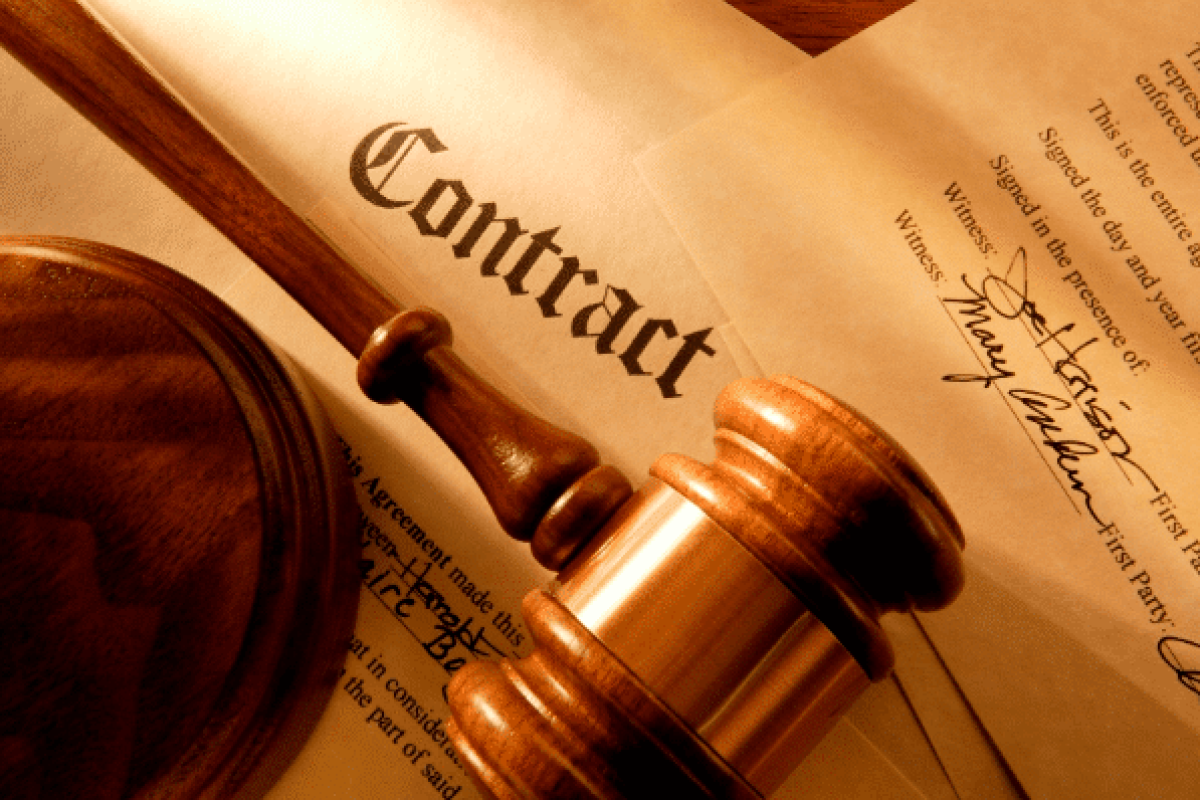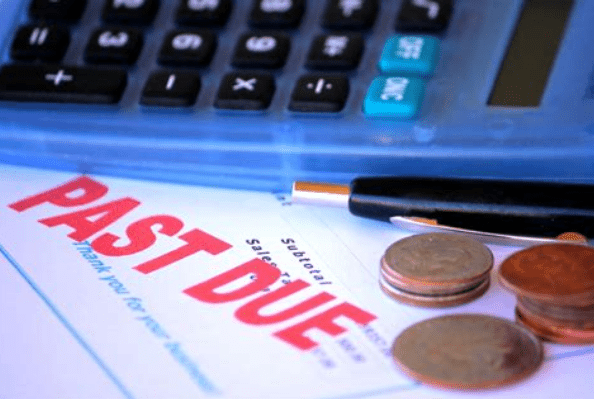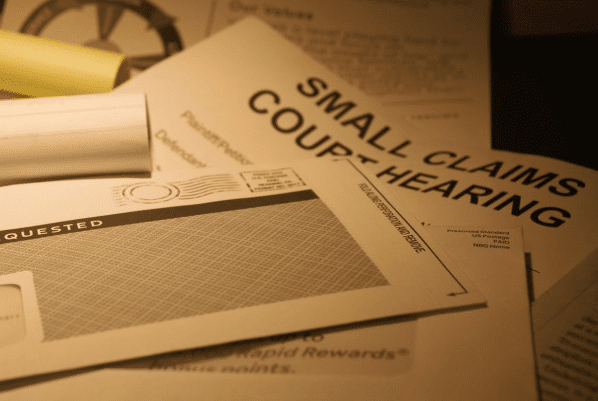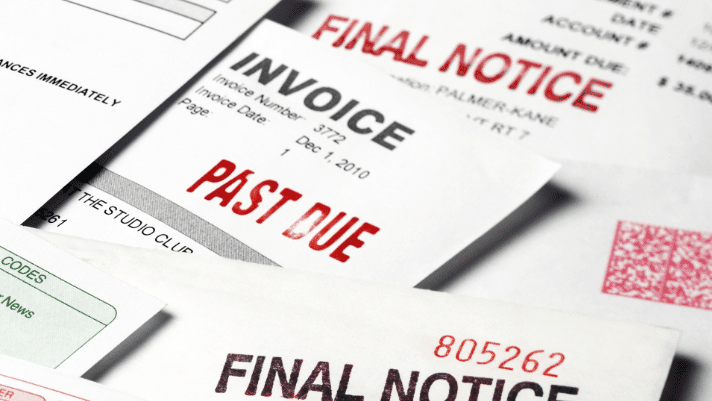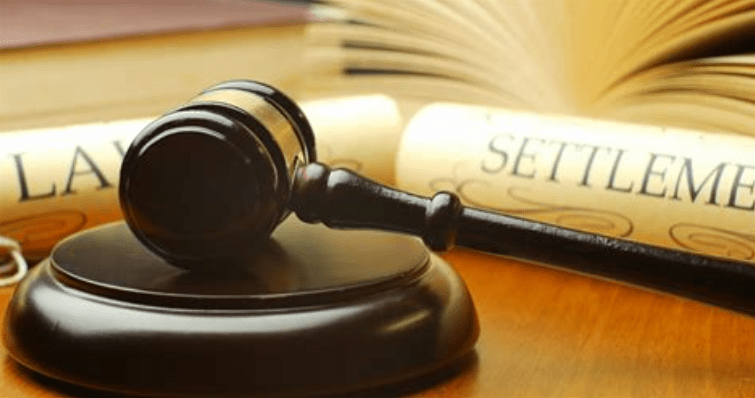In New Jersey, you have 35 days to respond to a debt collection lawsuit, and it’s crucial to take action within this timeframe. Crafting a written Answer is the key to asserting your rights and defending yourself against the claims made in the lawsuit. With ZumaZip, you can streamline this process and ensure that your response is thorough and effective.
Our platform guides you through each step of drafting and filing your Answer, providing clear instructions and prompts along the way. Whether you’re addressing specific claims or asserting affirmative defenses, ZumaZip makes it easy to compile the necessary information and submit your response to the court.
Don’t let a debt collection lawsuit catch you off guard. With ZumaZip, you can confidently navigate the legal process and protect your rights in New Jersey.
Facing a debt collection lawsuit can indeed be a daunting experience, but it’s important to remember that you’re not alone in this journey. While the prospect of legal action from a debt collector may seem overwhelming, there are ways to navigate the process with confidence and ease.
In this article, we’ll provide you with the tools and information you need to effectively respond to a debt collection lawsuit in New Jersey. From understanding important deadlines to navigating the necessary forms, we’ll guide you through each step of the process.
By arming yourself with the right knowledge and resources, you can take proactive steps to defend your rights and protect your interests. So, grab a snack, settle in, and let us help you navigate the path to successfully responding to a debt collection lawsuit in New Jersey. With the right roadmap and guidance, you can face this challenge head-on and emerge victorious.
Respond to your lawsuit before the New Jersey deadline
You have 35 days to respond to a debt lawsuit in New Jersey, according to N.J. Ct. R. 4:6(a), which states:
“(a) Time; Presentation. Except as otherwise provided by Rules 4:7-5(c) (crossclaims), 4:8-1(b) (third-party joinder), 4:9-1 (answer to amended complaint), and 4:64-1(i) (governmental answer in foreclosure actions), the defendant shall serve an answer, including therein any counterclaim, within 35 days after service of the summons and complaint on that defendant.”
Knowing which court has jurisdiction over your case will make responding much easier. Here are the following judicial divisions that oversee debt collection cases:
- Law Division (Claims above $15,000)
- Law Division, Special Civil Part (Claims between $3,000-$15,000)
- Small Claims Court (Claims between $1-$3,000)
No matter which division your case is “venued” in, when you get sued for a debt in New Jersey, you only have 35 days to respond or you automatically lose your case through a process called “default” judgment. Debt collectors are hoping you will forget to respond or not know how to respond; don’t give them the satisfaction!
As we said, the standard amount of time is the same, whether your case is for $1 or more than $15,000, and whether you case is given an “L” for Law Division, “DC” for Special Civil Part, or “SC” for Small Claims. Occasionally, and worth keeping in mind, is that if your case is in the Law Division with an “L” assigned to it, you may be able to request an extension of time from the Courts.
First, you have to ask your adversary, and if you ask nicely, the debt collector will probably grant the extension. Every little bit of time can provide you additional peace of mind as you prepare your response.
We’ll show you some ways to respond below. With ZumaZip, you can generate your response in 15 minutes and we’ll have an attorney review it and even file it for you.
New Jersey Answer to Summons Templates
To respond to your debt collection lawsuit, you need to make an Answer document that responds to the Summons and Complaint you received.
The ZumaZip Answer form is the easiest way to generate a customized response to your debt lawsuit. All you have to do is respond to a series of questions about your case, and our software will create a personalized Answer for you that includes your responses to each claim and affirmative defenses.
Alternatively, you can use the New Jersey Answer to Summons forms listed on their judicial branch website:
Use the ZumaZip New Jersey Answer Form.
Answer Filing Fees for New Jersey
New Jersey courts charge a filing fee to file your Answer with them.
Sure, having to pay money to defend yourself on top of being sued is like being kicked when you’re already down… But if you win your debt collection lawsuit, the minor cost of admission will be well worth it. Here are the filing fees you should expect in each division of the Courts:
Just like you can’t pump your own gas in Jersey, you can’t access the courts for free – what a racket! The pork roll sandwiches, however, are the best in the world.
Back to business – Let’s consider an example to see how to use the New Jersey filing fee table above.
Jeff finds himself facing a lawsuit filed against him in the Special Civil Part of the Hudson County Superior Court. The reason? He allegedly failed to pay his overdue credit card bill, amounting to $5,000. Given that Jeff resides in Hoboken, it’s no surprise that the lawsuit was filed in Hudson County. Debt collectors typically target the debtor’s place of residence.
Considering that the amount in question falls below $15,000, Jeff is required to pay a $30 filing fee. This fee is a standard part of the legal process in such cases.
ZumaZip takes care of paying your filing fees for you.
Follow these steps to respond to a debt collection lawsuit in New Jersey
A lawsuit begins when you receive the court Summons and Complaint. The Summons notifies you of the case, while the Complaint lists the specific claims against you.
In most states, these documents need to be handed personally to someone at your home. However, these documents are frequently delivered incorrectly, a process called “sewer service”—something you can use as a defense (more on defenses to come).
Once you receive the Summons and Complaint, your clock starts ticking and you need to respond within 35 days or you will lose your case automatically.
To respond, you need to follow these three steps:
- Respond to each claim listed in the Complaint.
- Assert your affirmative defenses.
- File the Answer in court, and send a copy to the plaintiff’s attorney.
Let’s check out each step in detail.
1. Respond to each claim listed in the Complaint
When drafting your Answer, you should primarily focus on responding to each claim against you.
The Complaint document includes several numbered paragraphs that lay out the lawsuit against you. For debt collection cases, there are usually between 10 and 30 numbered paragraphs, or claims. Sometimes these are broken into sections, such as “parties,” “jurisdiction” and “facts,” and sometimes they aren’t. It’s a matter of style really, and every attorney has their own preference.
But make sure to pay attention to the numbers, and to mirror them in each of your responses. You should reply to each claim with one of the following responses:
- Admit: Admit the paragraph if you agree with everything in the paragraph.
- Deny: Deny the paragraph if you disagree with anything in the paragraph.
- Deny due to lack of knowledge: This is a lawyerly way of saying “I don’t know.” Choose this option if you don’t understand the paragraph or if you don’t have the information needed to respond to it.
Choose one of these responses and write it into your Answer after the corresponding paragraph number. Many attorneys recommend making a general denial, where you deny everything in the Complaint and force the other side to prove everything. This is a good strategy in many cases.
2. Assert your affirmative defenses
An “affirmative defense” is a reason why the person suing you doesn’t have a case; it is your defense against all or part of the lawsuit. You must list these defenses in your Answer, otherwise, you can’t bring them up later. To put it in a lawyerly way, you are “barred from raising” the defenses if you don’t include them in your initial response. So you must speak now, or forever hold your peace.
ZumaZip helps you bring up the right defenses.
Here are some of the more common defenses we see:
- The account with the debt is not your account.
- The contract was already canceled and therefore you don’t owe the creditor anything.
- The Plaintiff acted in bad faith or with “unclean hands” in suing you.
- The statute of limitations has expired. A statute of limitations is a law that sets a time limit on an action.
- The debt has been paid or excused.
- The debt has been settled for a different amount than the one in the Complaint.
- The debt has been partially or fully paid, also known as “satisfied.”
- You were a co-signer but were not informed of your rights as a co-signer.
These are a few of the many affirmative defenses out there. Unfortunately, being unable to pay the debt is not a legal defense to the debt.
3. File the Answer in court, and send a copy to the plaintiff’s attorney
Once you responded to each claim listed in the Complaint, and asserted your affirmative defenses, you are ready for the final step: file your Answer.
The Answer document by itself is worthless unless you file it properly. Otherwise, it’s like painting a picture and immediately putting it into storage for no one to ever see. ZumaZip takes care of filing for you so you don’t have to worry about buying a printer and figuring out whether you need Certified Mail, Priority Mail, First Class Mail, a Flat Rate Box or some other type of service from the Post Office.
Here’s what you need to do to file your answer.
- Print two copies of your Answer.
- Mail one copy to the court.
- Mail the other copy to the plaintiff’s attorney.
ZumaZip files your Answer for you, in all 50 states.
The address for the attorney will be in the Summons and Complaint you received in the mail. But where is the address for the Court? Good question; most court documents don’t list the mailing address of the Court. And the mailing address of the Civil Division is often different from the physical address of the Courthouse listed online for any number of reasons, such as one Court having more than one building, or even a Court having two locations on opposite ends of the same county.
For a small state, New Jersey has almost as many courthouses as shopping malls. That’s why we compiled a list of every court in New Jersey to find the correct mailing address for you to use. They are listed below.
Once you complete this final step: Congrats! You have successfully responded to your debt lawsuit. With ZumaZip, you can increase the chances of winning your case by 7x.
Now, let’s look at an example of how to respond to a debt lawsuit in New Jersey.
Todd finds himself in a legal battle with Midland Credit Management in New Jersey over an old credit card debt amounting to $2,000. Utilizing ZumaZip’s services, Todd efficiently drafts and files a response to the lawsuit. In his Answer, Todd refutes the majority of the claims made against him and presents several affirmative defenses, notably highlighting the expired statute of limitations on debt.
Upon receiving Todd’s response, Midland Credit Management takes action by filing a motion to dismiss the case in court. As a result, Todd successfully navigates through the legal process, ultimately leading to the dismissal of the lawsuit. With this resolution, Todd can now breathe a sigh of relief and focus on moving forward with his life, free from the burden of the debt collection lawsuit.
Why ZumaZip?
ZumaZip simplifies the process of combating debt collectors. Whether you need to respond to a debt lawsuit, correspond with collectors through letters, or negotiate debt settlements, ZumaZip has got you covered.
Our Answer service is a user-friendly web application that guides you through each step, prompting you with all the essential questions needed to complete your response. Once you’ve filled out your Answer, our team of attorneys will review your document, ensuring its accuracy and completeness, before filing it on your behalf. With ZumaZip, navigating the complexities of debt collection becomes effortless and stress-free.
Statute of limitations on debt in New Jersey
Under New Jersey Rules of Civil Procedure, §2A:14-1 states:
“Every action at law for trespass to real property, for any tortious injury to real or personal property, for taking, detaining, or converting personal property, for replevin of goods or chattels, for any tortious injury to the rights of another not stated in sections 2A:14-2 and 2A:14-3 of this Title, or for recovery upon a contractual claim or liability, express or implied, not under seal, or upon an account other than one which concerns the trade or merchandise between merchant and merchant, their factors, agents and servants, shall be commenced within 6 years next after the cause of any such action shall have accrued.”
In other words, the statute of limitations on debt is six years in New Jersey. This means that you can’t legally be sued for a debt more than six years after you made the last payment.
However, that won’t stop creditors and debt collectors from filing a suit against you. It’s up to you to show that the statute of limitations has passed in your Answer. ZumaZip can help you use the statute of limitations as a defense in your case.
Similarly, §2A:14-5 states:
“A judgment in any court of record in this state may be revived by proper proceedings or an action at law may be commenced thereon within 20 years next after the date thereof, but not thereafter. An action may be commenced on a judgment obtained in any other state or country within 20 years next after the date thereof or within the period in which a like action might be brought thereon in that state or country, whichever period is shorter, but not thereafter.”
This means that, on judgment debt, the statute of limitations is 20 years. So, if you get sued for a debt, don’t respond and lose by default judgment, then the new statute of limitations will be 20 years; that’s a long time.
The table below further illustrates the statute of limitations on different types of debt in New Jersey. Check it out:
| Debt Type | Deadline |
|---|---|
| Credit Card | 6 years |
| Medical | 6 years |
| Student Loan | 6 years |
| Auto Loan | 6 years |
| Mortgage | 6 years |
| Personal Loan | 6 years |
| Oral contract | 6 years |
| Judgment | 20 years |
| Source: N.J. Stat. § 2A:14-1,5 |
ZumaZip makes it easy to assert the statute of limitations.
Let’s consider another example.
Example: Willy owes a credit card debt in New Jersey, and the last time he made a payment towards the debt was eight years ago. A debt collector tries to sue him for the debt. In this case, the statute of limitations has expired and Willy needs to bring that up as an affirmative defense in his case.
New Jersey debt collection laws can protect you
New Jersey is governed by the Fair Debt Collection Practices Act, which is a federal law that protects consumers from abusive debt collectors. Here are some of the most relevant New Jersey debt collection laws you should know about:
- Debt collectors cannot call you before 8 a.m. or after 9 p.m.
- Debt collectors cannot call you at work when your employer prohibits such communication.
- Debt collectors cannot tell your family or friends that you owe a debt.
- Debt collectors cannot continue to contact you when you have explicitly asked them not to.
- Debt collectors cannot take actions considered harassment or abuse under the FDCPA.
- Debt collectors cannot claim they will sell your debt in order to coerce you to pay.
- Debt collectors cannot cause your phone to ring repeatedly with the intent to annoy.
- Debt collectors cannot fail to disclose that they are a debt collector.
- Debt collectors cannot make false claims about who they are.
- Debt collectors cannot threaten to seize your house or other property.
- Debt collectors cannot threaten to take legal action that they cannot, or do not plan to, take.
Knowing your rights as a consumer is the best way to protect yourself from debt collectors and fight back. If a debt collector has violated any of these regulations when communicating with you about your debt, you can file a counterclaim and potentially be compensated up to $1,000 per violation.
Facing financial challenges can be overwhelming, but you don’t have to navigate them alone. The Debt Lawyer specializes in offering comprehensive bankruptcy solutions for residents of New Jersey and New York with a team of seasoned team of legal professionals dedicated to providing personalized guidance every step of the way. Whether you’re considering filing for bankruptcy or just seeking clarity about your financial situation, you have resources.
New Jersey legal aid organizations can help you
Every state has at least one government-funded organization that provides free legal services to people, including New Jersey, which has many, grouped by region.
| County | Address | Phone | |
|---|---|---|---|
| Bergen | 190 Moore Street, Suite 100 Hackensack, NJ 07601 | 201-487-2166 | NNJLS@lsnj.org |
| Hudson | 574 Summit Avenue, 2nd Floor Jersey City, NJ 07306 | 201-792-6363 | NNJLS@lsnj.org |
| Passaic | 152 Market Street, 6th Floor Paterson, NJ 07505 | 973-523-2900 | NNJLS@lsnj.org |
| Essex | 5 Commerce Street, 2nd Floor Newark, NJ 07102 | 973-624-4500 | enls@lsnj.org |
| County | Address | Phone | |
|---|---|---|---|
| Hunterdon | 82 Park Avenue Flemington, NJ 08822 | 908-782-7979 | lsnwj-hunterdon@lsnj.org |
| Morris | 30 Schuyler Place, 2nd Floor Morristown, NJ 07963 | 973-285-6911 | lsnwj-morris@lsnj.org |
| Somerset | 18 Church Street, Suite 120 Newton, NJ 07860 | 973-383-7400 | lsnwj-sussex@lsnj.org |
| Warren | 91 Front Street Belvidere, NJ 07823-1437 | 908-475-2010 | lsnwj-warren@lsnj.org |
| County | Address | Phone | |
|---|---|---|---|
| Trenton | 198 West State Street Trenton, NJ 08608 | 609-695-6249 | cjls@lsnj.org |
| Perth Amboy | 313 State Street, Suite 308 Perth Amboy, NJ 08861 | 732-324-1613 | cjls@lsnj.org |
| New Brunswick | 317 George Street, Suite 201 New Brunswick, NJ 08901 | 732-249-7600 | cjls@lsnj.org |
| Elizabeth | 60 Prince Street Elizabeth, NJ 07208 | 908-354-4340 | cjls@lsnj.org |
| County | Address | Phone | |
|---|---|---|---|
| Atlantic | 1300 Atlantic Avenue Atlantic City, NJ 08401 | 609-348-4200 | SJLS@lsnj.org |
| Burlington | 107 High Street Mount Holly, NJ 08060 | 609-261-1088 | SJLS@lsnj.org |
| Camden | 745 Market Street Camden, NJ 08102 | 856-964-2010 | SJLS@lsnj.org |
| Cape May | 1261 Route 9 South Cape May Court House, NJ 08210 | 609-465-3001 | SJLS@lsnj.org |
| Cumberland/Salem | 415 W. Landis Avenue-2nd Floor Vineland, NJ 08360 | 856-691-0494 | SJLS@lsnj.org |
| Gloucester | 47 Newton Avenue Woodbury, NJ 08096 | 856-848-5360 | SJLS@lsnj.org |
| Monmouth | 303 West Main Street, Third Floor Freehold, NJ 07728 | 732-414-6750 | SJLS@lsnj.org |
| Ocean | 215 Main Street Toms River, NJ 08753 | 732-608-7794 | SJLS@lsnj.org |
New Jersey Court Mailing Addresses
To file your Answer, you need to get it to your Court. For many people, the easiest way to do this is to mail it. But it can be surprisingly difficult to find the mailing address for your Court online. So we’ve listed the mailing address for all New Jersey Courts here. Note: New Jersey has 21 counties, but 15 “Vicinages” – or districts, for its Courts. A few counties have to buddy up and share!
| NJ Court | Address | Phone | Vicinage |
|---|---|---|---|
| Atlantic County Superior Court | Atlantic County Civil Courts Building 1201 Bacharach Boulevard Atlantic City, Nj 08401 | 609-402-0100 | 1 |
| Cape May County Superior Court | Cape May County Courthouse 9 North Main Street Cape May Court House, NJ 08210 | 609-402-0100 | 1 |
| Bergen County Superior Court | Bergen County Justice Center 10 Main Street Hackensack, NJ 07601 | 609-402-0100 | 2 |
| Burlington County Superior Court | Burlington County Court Facility 49 Rancocas Road Mount Holly, NJ 08060 | 609-288-9500 | 3 |
| Camden County Superior Court | Camden County Hall of Justice 101 South 5th Street Camden, NJ 08103 | 856-650-9100 | 4 |
| Cumberland County Superior Court | Cumberland County Courthouse Broad and Fayette Streets Bridgeton, NJ 08302 | 856-878-5050 | 15 |
| Essex County Superior Court | Essex County Historic Courthouse 470 Dr. Martin Luther King Jr. Boulevard Newark, NJ 07102 | 973-776-9300 | 5 |
| Gloucester County Superior Court | Gloucester County Courthouse 1 North Broad Street Woodbury, NJ 08096 | 856-878-5050 | 15 |
| Hudson County Superior Court | Hudson County Administration Building 595 Newark Avenue Jersey City, NJ 07306 | 201-795-5162 | 6 |
| Hunterdon County Superior Court | Hunterdon County Courthouse 65 Park Avenue Flemington, NJ 08822 | 908-824-9750 | 13 |
| Mercer County Superior Court | Mercer County Civil Courthouse 175 South Broad Street Trenton, NJ 08650 | 609-571-4200 | 7 |
| Middlesex County Superior Court | Middlesex County Courthouse 56 Paterson Street New Brunswick, NJ 08903 | 732-645-4300 | 8 |
| Monmouth County Superior Court | Monmouth County Courthouse 71 Monument Park Freehold, NJ 07728 | 732-358-8700 | 9 |
| Morris County Superior Court | Morris County Courthouse Washington and Court Streets Morristown, NJ 07963 | 862-397-5700 | 10 |
| Passaic County Superior Court | Passaic County Courthouse 77 Hamilton Street Paterson, NJ 07505 | 973-653-2910 | 11 |
| Ocean County Superior Court | Ocean County Courthouse 118 Washington Street Toms River, NJ 08754 | 732-504-0700 | 14 |
| Salem County Superior Court | Salem County Courthouse 92 Market Street Salem, NJ 08079 | 856-878-5050 | 15 |
| Somerset County Superior Court | Somerset County Courthouse 20 North Bridge Street Somerville, NJ | 908-332-7700 | 13 |
| Sussex County Superior Court | Sussex County Judicial Center 43-47 High Street Newton, NJ 07860 | 862-397-5700 | 10 |
| Union County Superior Court | Union County Courthouse 2 Broad Street Elizabeth, NJ 07207 | 908-787-1650 | 12 |
| Warren County Superior Court | Warren County Courthouse 413 Second Street Belvidere, NJ 07823 | 908-750-8100 | 13 |
What is ZumaZip?
ZumaZip is a convenient solution designed to streamline your response to a debt collection lawsuit. Here’s a breakdown of what you can expect when you use ZumaZip:
Firstly, you’ll access our user-friendly web application, which guides you through the process step by step. You’ll be prompted to answer a series of questions related to your specific situation. Once you’ve completed the questionnaire, you have the option to either print out the finalized forms and mail them to the appropriate courts yourself, or you can opt to utilize ZumaZip’s services to file them on your behalf. Additionally, if you choose this option, an attorney will review your document for added peace of mind.
If you’re seeking guidance on how to effectively respond to a debt collection lawsuit, ZumaZip can provide the assistance you need. Feel free to explore our FAQs for more information on what ZumaZip has to offer.
What if I haven’t been sued yet?
If you’ve only received a collections notice, but not a lawsuit, the best way to respond is with a Debt Validation Letter. When a debt collector contacts you in any way, whether it’s by phone or mail, you can respond by formally requesting a debt validation with a Debt Validation Letter . This letter notifies the collector that you dispute the debt and forces them to provide proof you owe the debt. They can’t call you or continue collecting until they provide validation of the debt. This flowchart shows how you can use a Debt Validation Letter to win.
Get started with a Debt Validation Letter here.
How to Answer a Summons for debt collection in all 50 states
Here’s a list of guides on how to respond to a debt collection lawsuit in each state:
- Alabama
- Alaska
- Arizona
- Arkansas
- California
- Colorado
- Connecticut
- Delaware
- Florida
- Georgia
- Hawaii
- Idaho
- Illinois
- Indiana
- Iowa
- Kansas
- Kentucky
- Louisiana
- Maine
- Maryland
- Massachusetts
- Michigan
- Minnesota
- Mississippi
- Missouri
- Montana
- Nebraska
- Nevada
- New Hampshire
- New Jersey
- New Mexico
- New York
- North Carolina
- North Dakota
- Ohio
- Oklahoma
- Oregon
- Pennsylvania
- Rhode Island
- South Carolina
- South Dakota
- Tennessee
- Texas
- Utah
- Vermont; Vermont (Small Claims court)
- Virginia
- Washington
- West Virginia
- Wisconsin
- Wyoming
Guides on how to beat every debt collector
Hey there! Facing off against a debt collector can feel like a daunting challenge, but fear not! We’re here to help you navigate through it all with our handy guides designed to assist you in beating every debt collector you encounter. Whether you’re facing a new lawsuit or dealing with a persistent collector, we’ve got your back. Stay positive, stay informed, and let’s tackle this together!
- Absolute Resolutions Investments LLC
- Accredited Collection Services
- Alliance One
- Amcol Clmbia
- American Recovery Service
- Asset Acceptance LLC
- Asset Recovery Solutions
- Associated Credit Services
- Autovest LLC
- Cach LLC
- Cavalry SPV I LLC
- Cerastes LLC
- Colinfobur
- Covington Credit
- Crown Asset Management
- CTC Debt Collector
- Cypress Financial Recoveries
- Delanor Kemper & Associates
- Eagle Loan of Ohio
- Educap
- Estate Information Services
- FIA Card Services
- Forster & Garbus
- Freshview Solutions
- Fulton Friedman & Gullace LLP
- Harvest Credit Management
- Howard Lee Schiff
- Hudson & Keyse LLC
- Integras Capital Recovery LLC
- Javitch Block
- Jefferson Capital Systems LLC
- LVNV Funding
- Mannbracken
- Mariner Finance
- Medicredit
- Michael J Adams PC
- Michael J Scott
- Midland Funding LLC
- Mullooly, Jeffrey, Rooney & Flynn
- Mountain Land Collections
- MRS Associates
- National Collegiate Trust
- Nationstar Foreclosure
- Northstar Capital Acquisition
- NCEP LLC
- NRC Collection Agency
- OneMain Financial
- Palisades Collection LLC
- Pallida LLC
- Paragon Revenue Group
- Pinnacle Collections Agency
- PMAB LLC
- Portfolio Recovery Associates
- Provest Law
- PYOD LLC
- Reunion Student Loan Finance Corporation
- Revenue Group
- Regents and Associates
- RSIEH
- Salander Enterprises LLC
- Second Round Sub LLC
- Security Credit Services
- Sherman Financial Group
- Suttell and Hammer
- T-Mobile
- Transworld Systems
- Tulsa Teachers Credit Union
- UCB Collection
- Velo Law Office
- Velocity Investments
- Waypoint Resource Group
- Weinberg and Associates
- Wolpoff & Abramson
Settle your medical debt
Having a health challenge is stressful, but dealing medical debt on top of it is overwhelming. Here are some resources on how to manage medical debt.
- Am I Responsible for My Spouse’s Medical Debt?
- Do I Need a Lawyer for Medical Bills?
- Do I Need a Lawyer to Fight Medical Bill Debt?
- Does Bankruptcy Clear Medical Debt?
- How Much Do Collection Agencies Pay for Medical Debt?
- How to Find Medical Debt Forgiveness Programs
- Is There a Statute of Limitations on Medical Bills?
- Medical Debt Statute of Limitations by State
- Summoned to Court for Medical Bills — What Do I Do?
- Summoned to Court for Medical Bills? What to Do Next
Stop calls from Debt Collectors
Do you keep getting calls from an unknown number, only to realize that it’s a debt collector on the other line? If you’ve been called by any of the following numbers, chances are you have collectors coming after you, and we’ll tell you how to stop them.

